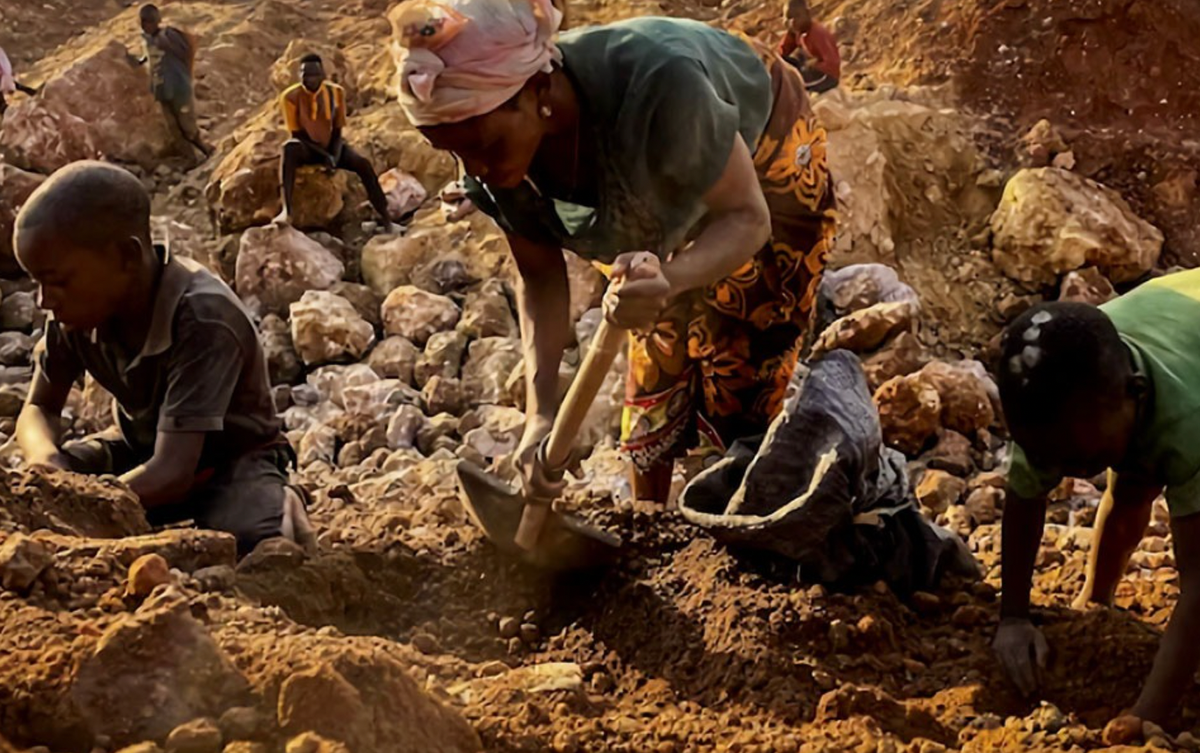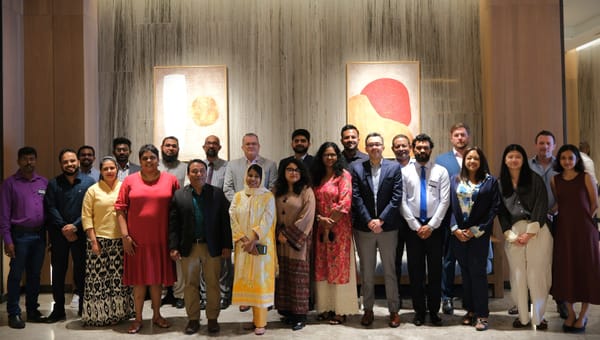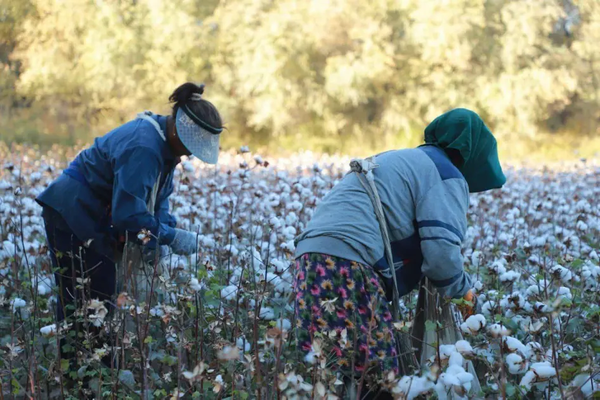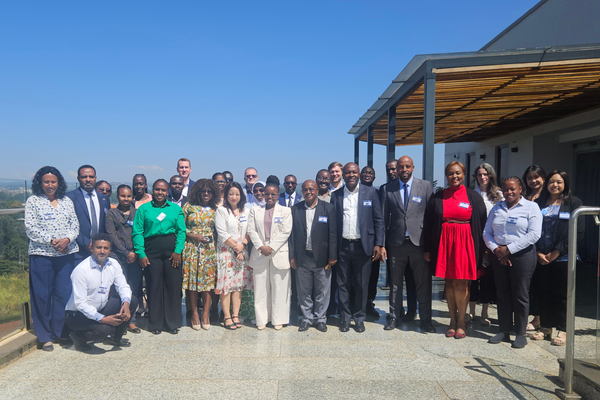Companies must be transparent on the limitations of audits in identifying forced labour

Traditional work inspections are failing to spot hidden forms of forced labour, a report explores the link between a lack of legal identity and modern slavery, and Australia is to hold companies accountable for scams carried out through their platforms.
A panel discussion last week by the U.S. Department of Labor highlighted that traditional approaches to work and factory inspections miss subtle yet severe forms of forced labour and exploitation, such as coercion, restricted movement, or hidden control mechanisms. At the launch of two publications from the Bureau of International Labor Affairs (ILAB), Findings on the Worst Forms of Child Labor and the List of Goods Produced by Child Labor or Forced Labor, speakers observed that commonly used assessments such as audits and social compliance inspections often focus on surface-level violations such as poor working conditions, treating these as isolated issues and failing to engage with workers in a way that reveals the full scope of their exploitation. This creates a blind spot where companies and regulators may believe they have addressed labour rights issues while, in reality, the most serious forms of abuse continue unchecked.
The latest List of Goods Produced by Child Labor or Forced Labor includes 204 products from 82 countries, with 72 additions such as lead, nickel, polyvinyl chloride and squid. The report also includes several studies tracing goods tainted with forced or child labour through complex global supply chains, and adds 43 products made with downstream inputs produced with child labour or forced labour, such as cotton textile products from China and Vietnam produced with Chinese cotton, food and beverage products linked to child labour in cocoa industries in Ghana and Ivory Coast, and sugar products tied to forced labour in the sugarcane industry in the Dominican Republic.
The panel discussion highlighted the case of the Indian shrimp industry, in which investigators initially found poor working conditions such as extreme heat and health risks. These conditions alone were concerning, but it took a year of further investigation by Corporate Accountability Lab – which is currently fundraising to cover ongoing legal costs – to reveal that some workers were confined to dormitories, allowed out only occasionally, and subjected to restrictions on movement. The case demonstrates the way in which audits or inspections, which many companies rely on, can easily fail to detect the deeper issues of coercion and control that define forced labour.
Superficial audits allow companies to believe they are meeting ethical standards, creating a gap between their reporting and the exploitative conditions workers face. However, while this can cause reputational damage if the truth surfaces, perpetrators are rarely held accountable, which undermines the laws and regulations designed to protect workers and weakens corporate accountability. Furthermore, without a clear understanding of the root causes of forced labour, any remediation efforts will be ineffective or insufficient and, while companies may implement surface-level improvements, forced labour will continue if the systemic exploitation that enables it is not addressed.
The speakers noted that, moving forward, audits should not be viewed as a comprehensive solution to forced labour but rather as one part of a broader strategy that includes in-depth investigations and ongoing monitoring of labour practices. Companies and auditors must be more transparent about the limitations of traditional social audits and set realistic expectations about what audits can and cannot reveal, they said. Moreover, companies should implement secure, anonymous reporting mechanisms that workers can trust – partnering with local civil society organizations that are familiar with the local context and trusted by workers can help facilitate safer channels for reporting abuses. In isolated environments such as fishing vessels, providing workers with access to communication tools such as Wi-Fi allows them to report abuse in real time, breaking their isolation and giving them a way to connect with outside support.
Long-term, in-depth investigations are vital for uncovering the systemic exploitation that audits often miss. Unlike inspections of a brief and finite duration, which provide a limited view of working conditions, long-term investigations involve sustained engagement with workers and can track patterns of abuse, coercion and forced labour that may not be immediately visible.
These investigations are not just about uncovering individual cases – they often highlight systemic, industry-wide issues. By documenting forced labour or poor working conditions across multiple companies or locations, long-term investigations can drive industry-wide reforms. They provide the kind of comprehensive data needed to influence policy changes and encourage a collective response from industry stakeholders, ultimately helping to address forced labour at a larger scale.
Here’s a round-up of other noteworthy news and initiatives:
A new report by the United Nations University Centre for Policy Research (UNU-CPR) and the Freedom Fund analyzes the links between a lack of official documentation and modern slavery. Without legal identity, people struggle to access basic services, perpetuating cycles of marginalization, poverty and exploitation. When they fall into situations of abuse, they often remain trapped due to mistrust of the authorities who are responsible for providing protection and support.
The Australian Government’s planned Scam Code Act has been welcomed by International Justice Mission Australia, which says the obligations introduced by the Act will be valuable in requiring banks, telecommunications service providers and social media companies to take responsibility for the scams being carried out through their platforms and services. The Act will introduce new requirements for companies to disrupt financial scams and include minimum expectations for them under new mandatory industry and company codes.
An evangelical preacher wanted by the FBI and who has close ties to former leader Rodrigo Duterte and his family has been arrested as the clan’s rift with President Ferdinand Marcos Jr. deepens. The 74-year-old pastor was on the FBI’s most wanted list for alleged sexual abuse, human trafficking and bulk cash smuggling. Apollo Quiboloy had long denied the allegations, saying it was part of the struggle of being the “appointed Son of God”. He also faces cases in local courts.
The number of farm workers seeking help with dismissal after traveling to work in the UK has more than doubled over the past year, according to The Worker Support Centre, which supports seasonal workers across the country. Most workers incur debts to travel to the UK on the seasonal worker visa, on which it is not possible to leave a farm and find other work. The risks when they lose their job are often so high that some will endure extremely difficult working conditions, a spokesperson said.
The National Bureau of Economic Research has published a working paper that tests a “business case” for improving working conditions and promoting human rights using a randomized controlled trial across nearly 300 brick kilns in Bangladesh, on the basis that effective strategies for addressing forced and child labour may need to align with the private incentives of business owners.
The New York Times has interviewed 10 women who worked with Tim Ballard, former leader of controversial non-profit Operation Underground Railroad, who describe their time there as a “nightmare of sexual harassment, coerced sexual contact and sexual assault”. There has been renewed media coverage of Ballard’s conduct after six women filed lawsuits accusing him of sexually assaulting them, saying he preyed on their desire to help trafficking victims, coercing or forcing them into sexual encounters as part of their undercover work in brothels, strip clubs and massage parlors.
Tomorrow, 11 September, at 15:00 to 17:00 CEST, join OSCE for the online launch of its publication “Out of the Shadows: Addressing the Dynamics of Trafficking in Persons Belonging to Minorities, Including National Minorities”. The event will explore the intersection of racial and ethnic discrimination and human trafficking across the OSCE region, looking at the ways in which deep-rooted biases and under-representation increase vulnerability and barriers to justice for minorities.
Innovations for Poverty Action is hiring a Program Coordinator to provide administrative coordination and communications support for two of its Sector Programs – the Financial Inclusion Program (FIP) and the Human Trafficking Research Initiative (HTRI) – and provide overall administrative support to the Sector Programs team.




